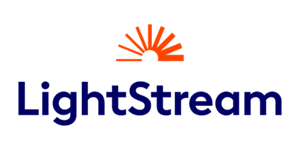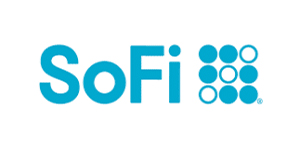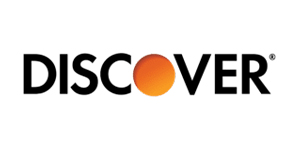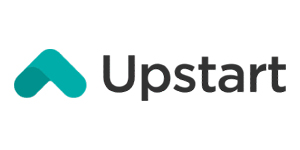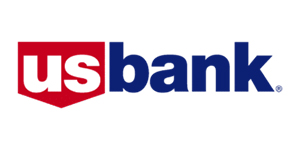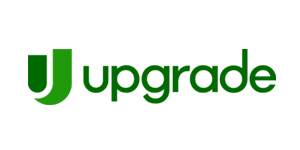Best Debt Consolidation Loans
Debt consolidation is the No. 1 reason people take out a personal loan, according to a recent survey by MarketWatch Guides.
It’s easy to see why. A debt consolidation loan can combine and replace your existing accounts – including credit cards, medical bills and other high-interest debt – to help you pay them off more quickly and at less cost. On average, consumers who take out debt consolidation loans pay down their credit card debt by more than half, from about $14,000 to less than $5,900, according to a recent study from TransUnion.
However, it’s important to understand what kind of loan you’re taking out. Some loans have high interest rates that may not save you any money and others might ask you to use your car or home as collateral. We’ve researched the industry and found eight strong lenders who offer debt consolidation loans that can help you lower your interest rate, your monthly payments or both – and leave you with one single monthly payment.
If you’re searching for the best debt consolidation loan, here’s where to start.
- LightStream: Our top pick
- SoFi: Best customer service
- PenFed: Best rates
- Discover: Best for credit score checkers
- Upstart: Best for bad or no credit
- U.S. Bank: Best for loyal customers
- Upgrade: Best discounts
- Wells Fargo: Best for in-person service
*Rates accurate as of June 26, 2024
In the News: Debt Consolidation Loan Rates
Fed Rates Remain Steady
As experts predicted, the Federal Reserve announced on June 12 that it’s holding steady on interest rates. The Fed now predicts it will lower rates once this year — down from an expected three times earlier this year.
While this means that rates for a debt consolidation loan might not come down much in the immediate future, unsecured loan rates are still generally more advantageous than credit card interest rates.
"While the high rate environment may prevent borrowers from getting the most advantageous rates, they are still likely lower than the rates charged by credit cards… which could still be a win for consumers,” said Adam Koprucki, founder of RealWorldInvestor.com.
What Is Debt Consolidation?
Debt consolidation is a good strategy for managing multiple debts simultaneously. Below, we will explore whether a debt consolidation loan is worth it, how it works, and whether or not it will hurt your credit score.
Is Debt Consolidation a Good Idea?
While we list all your debt consolidation options in the table below so you can make an informed choice, we want to highlight debt consolidation loans as a solid option for a couple of reasons:
- More than half of individuals who took out a debt consolidation loan decreased their balances by 60% or more, according to a TransUnion study.
- A full 84% of consumers with credit scores of less than 600 saw their scores rise by more than 20 points after taking out a debt consolidation loan, the same study found.

Nationally, credit unions are often a top choice for debt consolidation, according to a recent report from Stephanie Landry and Spectra Myers of the nonprofit Community Financial Resources. A credit union’s low cost and focus on the consumer make them attractive, the report found, while loans from fintech companies tended to cost more.
However, the report also cautions that if you can only qualify for a debt consolidation loan with a high APR, you may not see much benefit.
How Do Debt Consolidation Loans Work?
Follow these 4 steps to understand how debt consolidation loans work and how to apply.
- Step 1: Inventory Your Debt. Gather the balances on all your high-interest accoutns and add up your total outstanding debt. This total represents the size of loan you'll need to consolidate the debt.
- Step 2: Compare Lenders. Get quotes from 3-4 lenders for the loan amount you need. Most lenders have a preapproval process to check your rates without affecting your credit score.
- Step 3: Apply Online. Choose teh best quote and fill out a full loan application with that lender. Upon acceptance, your lender will either pay off your creditors directly or send you funds to pay off your accounts.
- Step 4: Pay Off Your Debt. Now, make one (lower) monthly paymentto your debt consolidation lender and climb out of debt.
Do Debt Consolidation Loans Hurt Your Credit?
In the short term, opening a debt consolidation loan will impact your credit. When you take out a new loan, a hard inquiry will appear on your credit report, which can cause a slight decrease in your credit score.
In the long term, when you pay off one or more credit cards with your debt consolidation loan, that will increase your credit score since you’ll decrease your credit utilization ratio. If you consistently make on-time payments toward your new loan, that will help your credit score, too, since you’ll improve your payment history.
In our 2024 MarketWatch debt consolidation survey, 64% of borrowers said their credit score improved after taking out a debt consolidation loan. Scores improved by an average of 13% (or nearly 43 points) after taking out the loan.
Additionally, a debt consolidation loan seems to be a solid way of getting a handle on your debt, as long as you’re able to pay down your existing debt and resist running up new debt. More than 77% of our survey respondents were confident or very confident they’d remain debt free after paying off their debt consolidation loan.
Alternatives to Personal Loans for Debt Consolidation
The most common ways to consolidate debt are:
- Personal Loan
- 0% Balance Transfer Card
- 401(k) Loan
- Whole Life Loan
- Home Equity Loan
- HELOC
Below find more information on each debt consolidation tactic, along with the pros and cons of each.
Average interest rates come from the Federal Reserve unless otherwise noted.
Description: An unsecured fixed-rate loan large enough to pay off all outstanding high-interest debt, where funds are sometimes sent directly to creditors
Average Interest Rate: 12.49% current average APR*
Description: A teaser rate on a new variable-rate credit card that allows you to transfer other high-interest credit card debt and pay 0% interest for a set length of time
Average Interest Rate: 0% for 6 to 18 months, 21.59% average APR after that (current average)*
Description: An installment loan on your 401(k) retirement account that you pay back within 5 years
Average Interest Rate: Normally 1% to 2%, per our research*
Description: A loan against the cash value of your policy
Average Interest Rate: Normally 5% to 8%, per our research*
Description: A fixed-rate installment loan secured by the equity in your home with a long repayment schedule, usually 5 to 30 years
Average Interest Rate: 8.63% current average*
Description: A variable-rate loan secured by the equity in your home. During the draw period, you normally pay interest only, then repay interest and principal during the repayment period, typically over 20 to 30 years.
Average Interest Rate: 9.18% current average*
*Research and rates accurate as of 6/27
Debt Consolidation Stories
To better understand how debt consolidation can affect a family’s finances, we spoke with three people who’ve used a personal loan to consolidate debt.
Each found themselves in thousands of dollars worth of credit card debt with little hope of paying it all off. In each case, a debt consolidation loan was able to help them fully pay off their credit cards and get their finances back in order – but, of course, they don’t work for everyone.
While the people we spoke to had a positive experience, there can be downsides as well. Unless you’re disciplined, it can be easy to rack up more credit card debt after consolidating with a personal loan – leaving you in a worse position than you were before. Some debt consolidation loans also have large fees or high interest rates that can leave you with monthly payments that are hard to afford.
Still, when used wisely, debt consolidation loans can be a powerful tool to get out of debt – as the three people below prove. Here are their stories.
Though he had a good job as a computer technician, before Lorenzo knew it, he was $14,000 in debt, late on many of his payments and with no clue how to solve his financial problems. His credit score was plummeting, and he was being inundated with phone calls and letters from his creditors.
“I was desperate,” Lorenzo, a 28-year-old living in the Bronx, told MarketWatch Guides. “I wasn’t able to get out of it. Everything was all scattered.”
Then he heard about debt consolidation loans on the community forum website Reddit. He shopped around online for a bit, applying for loans with Upstart, Discover and U.S. Bank.
Upstart offered Lorenzo the lowest APR, so he signed the paperwork online. Soon he had used the money from the Upstart loan to pay off all of his existing accounts, leaving him with a single monthly payment.
“The process was easier than I thought it would be,” Lorenzo said.
Now with some breathing room, Lorenzo reined in his spending and committed to paying off his debt ahead of schedule. In two years, he was debt free. He told MarketWatch Guides that he now prizes his “fantastic” credit score and will never go back to running up debt. He said he wished more people knew about debt consolidation loans.
“You don’t just have to drown in your debt,” he said. “There are options and tools out there for you.”
Shortly after graduating college, Jessie Hwang moved to Washington D.C. and started putting just about every expense she had on her credit card. Utility bills, groceries, travel, you name it – it was charged to the credit account.
When one card got maxed out, Hwang opened up another. And then another. And another.
Eventually, she was $42,000 in debt and it was all she could do to make the minimum payments to cover the interest on each account. Actually paying off the debt felt out of reach.
“I had five or six credit cards open, and they were all maxed out,” Hwang, 35, told MarketWatch Guides in an interview. “I felt like nothing was going down. I was just paying the interest.”
She saw an advertisement for debt relief and started researching her options. She grew skeptical of debt settlement programs, but her research soon turned up debt consolidation loans. She quickly knew this type of personal loan was the right thing for her.
Hwang applied with Upstart and LendingClub, and found that Upstart gave her the better deal. Her APR on the Upstart loan was about 17%, compared with 30% or above on her credit cards.
She took out a three-year personal loan to pay off her credit card bills, got a second job and focused on paying off her debt. Hwang was able to pay off her Upstart loan ahead of schedule.
“It was taking a toll on my mental health. It felt very hopeless sometimes,” Hwang said about her debt. Now, she said, “I feel a lot better.”
Shortly after getting married, Colt Bradley started racking up credit card debt. While he tried to use cash for most of his purchases, it just seemed like there was always another expense he couldn’t quite meet without credit.
He put trips and gas on his credit card, hoping to earn enough rewards points or cash back to offset his spending.
Within a year or two, Bradley, 38, had about $12,000 in debt and used a debt consolidation loan to help him pay it off.
But Bradley’s financial habits hadn’t changed – and over the next few years he found himself in the hole once again.
“The debt just built up on us,” said Bradley, who lives in Nacogdoches, Texas.
This time, though, he was about $40,000 in debt. The interest payments alone ran him $600 or so each month, making it difficult to pay down the principal. Bradley turned to a debt consolidation loan once again.
Borrowing in 2022, Bradley was able to get a loan at an interest rate just under 7% with LendingClub. On a five-year loan, this meant his monthly payment was roughly the same as he’d been making on his credit card accounts – but now he had a clear pay-off date.
Bradley ended up paying off the loan in just two-and-a-half years, making the final installment just about a month before speaking with MarketWatch Guides. Starting fresh once again, Bradley said his family has changed spending habits to keep debt in check.
“Debt consolidation is a very good option for getting out of credit card debt,” he said. “It worked.”
When Is Debt Consolidation a Good Idea?
Consolidating debts into a single lower-interest loan can help lower your payments and stress level.

“Juggling multiple debt payments can be overwhelming. Consolidation into a single loan streamlines the process, making it easier to track progress and stay motivated.”
— Bruce McClary, senior vice president of membership and media relations at the National Foundation for Credit Counseling
Here are a few specific scenarios when a debt consolidation loan may be a good idea.
When You Have High-Interest Credit Card or Medical Debt
In our 2024 MarketWatch Guides debt consolidation survey, the vast majority of respondents, over 66%, consolidated credit card debt. About 40% consolidated medical bills (respondents could choose more than one option).
If you can take out a debt consolidation loan with a significantly lower interest rate (5% points or more below your current rate), McClary recommends seeing if you qualify for a consolidation loan. Even with loan fees, he said, this can save you a lot in the long run.
When You Have $10,000 to $50,000 in Total Outstanding Debt
The cost of taking out a new debt consolidation loan makes more mathematical sense with a large amount of outstanding debt. For example, a 2% origination fee on a loan of $50,000 is only $1,000, easily justifiable when you can save $100 to $200 or more each month in interest costs.
When You’re Planning to Retire Within Five to 10 Years
Is retirement on the horizon? You may want to consolidate and pay off debt to reduce your expenses in retirement if you’re over 50 or planning to retire in the next decade. Vanguard recommends paying off any high-interest debt like car payments, credit cards or even outstanding student loans to decrease both the interest you pay and the monthly payments you would have to make in retirement.
Eliminating a $500 monthly debt payment, for example, means you’ll have $500 more you can spend in retirement, or $500 less you’ll need in monthly retirement savings.
When Is Debt Consolidation a Bad Idea?
It’s not always in your best interest to take out a new debt consolidation loan. Here are several scenarios where debt consolidation is not your best option.
When You Can’t Make Your Current Monthly Payments
If you find yourself unable to make all your debt payments plus pay your regular bills, you may be better off working directly with a credit counselor. Make sure you work with a licensed nonprofit organization that won’t charge you for these services.
Many of these organizations can help you set up a Debt Management Plan (DMP) that can help you consolidate and pay down your debt with payments that fit your budget without paying to take out a loan.
When You Have Less than $5,000 to Consolidate
If you have only a small amount of debt to pay off, McClary cautioned against taking out a new loan.
“The fees and potential interest increase from a consolidation loan might outweigh the benefits of streamlined payments,” he said.
In this case, you’re better off putting a strict budget in place and paying off your debt by cutting your spending or temporarily increasing your income.
When You’re Thinking of Consolidating Student Loans
Student loans come with repayment benefits that you’d lose if you took out a debt consolidation loan. McClary explained that you could lose income-driven repayment plans and loan forgiveness options if you consolidate into a new loan.
How To Compare Debt Consolidation Loans
It makes sense to compare providers before you choose your debt consolidation lender. A plurality of respondents in our recent survey on debt consolidation, about 47%, compared two to three lenders before making a choice, although more than 23% of respondents looked at four or more lenders before choosing.
A good place to start is with your primary bank or credit union. Often, your bank can provide better rates and get money to you faster — sometimes in a couple of hours — since you’re an existing client and have a history with them. The application process can be much easier, too, since your bank already has a lot of your personal information.

“There's no great way to see where you'll get the best rate until you start applying. So the best thing to do is to prequalify with a handful of lenders — ideally three to five, though more won't hurt — and see what rates you're offered."
– Andrew Dunn, Senior Loans Editor at MarketWatch Guides
When comparing, not only do you want to choose a lender with a low APR, but you also need to make sure the loan has low origination fees, or ideally none at all since origination fees are taken directly out of your loan proceeds and reduce the money you have available to pay off debt.
Some lenders, mainly banks, often charge $29 or $39 late payment fees, so if you’re worried about getting your payments in on time, avoid those lenders.
Debt Consolidation Loan Requirements
To qualify for a debt consolidation loan, you generally need to have a good to exceptional credit score (670 to 850). However, some of the lenders on our list will consider you with lower scores, such as Upgrade and Upstart.
Additionally, some lenders may require several years of credit history and a low debt-to-income (DTI) ratio, said Kyle Enright, president of Achieve Lending. DTI measures your monthly earnings against all of your loan payments.

“Check with your current bank, first — especially if you’re in a hurry. Since your bank already knows your financial situation inside and out, they’re often willing to give you a good deal and can have money in your account within just a few hours.”
– Andrew Dunn, Senior Loans Editor at MarketWatch Guides
There are ways to get around these requirements if you don’t have the best credit:
- Check out credit unions: Credit unions will often have lower credit score and DTI requirements than traditional banks.
- Find a co-borrower with good credit: Many lenders let you add a co-borrower if you can’t qualify on your own.
- Try Upstart and Upgrade: Two of our recommended lenders lend to individuals with no credit or low credit. Upstart uses employment and education history to qualify you and accepts a minimum credit score of 300 (but will consider your application even if you don’t yet have a credit score). Upgrade offers a secured loan option backed by a paid-off car which is easier to qualify for and a minimum credit score of 560 to qualify. Both of these lenders charge high origination fees, though, and their highest APR, 35.99%, may mean you won’t save money with a new loan.
- Pre-qualify: All but one of our recommended lenders allows you to pre-qualify and check your rate without negatively impacting your credit score.
- Clean up your credit: Grab a free copy of your credit report at AnnualCreditReport.com and check for errors or small outstanding amounts you can pay off quickly to reduce your DTI ratio.
Recap of Our Picks for the Best Debt Consolidation Loans
- LightStream Personal Loans Review: Our top pick
- SoFi Personal Loans Review: Best customer service
- PenFed Credit Union Personal Loans: Best rates
- Discover Personal Loans Review: Best for credit score checkers
- Upstart Personal Loans Review: Best for bad or no credit
- U.S. Bank Personal Loans Review: Best for loyal customers
- Upgrade Personal Loans Review: Best discounts
- Wells Fargo Personal Loans: Best for in-person service
FAQ: Debt Consolidation Loans
Applying for a debt consolidation loan will temporarily lower your credit score due to the hard inquiry by lenders. However, if you make on-time payments and reduce your overall debt by paying down the loan and not adding more debt, you can improve your credit score over time.
If you don’t have a plan to make consistent on-time payments or you miss a payment, it can negatively impact your credit. Also, if you take out a debt consolidation loan but add additional medical or credit card debt, you may end up with larger payments and more total debt than when you started.
Yes, a debt consolidation loan can lower your monthly payments, especially if you combine multiple debts into a single personal loan or home equity loan with a long repayment period of 20 to 30 years. Keep in mind the longer your repayment period, the more interest you will pay over the life of the loan.
If you have a credit score of around 700 and a fairly high income, you’ll probably be easily approved for a debt consolidation loan. It also helps if your total debt, together with your rent or mortgage, is less than 50% of your gross monthly income. If you have a lower credit score or more debt, you may be approved for a loan, but pay attention to your interest rate: if it’s only a couple of points lower than your credit card interest rates, it’s probably not worth it to consolidate.
While you can technically still use your credit card after taking out a debt consolidation loan, it defeats the purpose of the loan — to eliminate your high-interest debt. If you’re able to, use a debit card or cash for everyday expenses. Ideally, you’ll want to save up a small emergency fund so you can tap into your cash, rather than credit, if you’re in a tight spot.
Methodology
Our MarketWatch Guides team analyzed the debt consolidation loans of over 30 lenders, considering minimum and maximum loan amounts, terms, APR, discounts and customer experience in our recommendations. Keep in mind that our top-rated lenders may not be the right fit for your specific financial situation. To learn more, you can read our full personal loans methodology.
Editor’s Note: Before making significant financial decisions, consider reviewing your options with someone you trust, such as a financial adviser, credit counselor or financial professional, since every person’s situation and needs are different.
*If you accept your loan by 5 p.m. EST (not including weekends or holidays), you will receive your funds the next business day. Loans used to fund education-related expenses are subject to a 3 business day wait period between loan acceptance and funding in accordance with federal law.
If you have feedback or questions about this article, please email the MarketWatch Guides team at editors@marketwatchguides.



